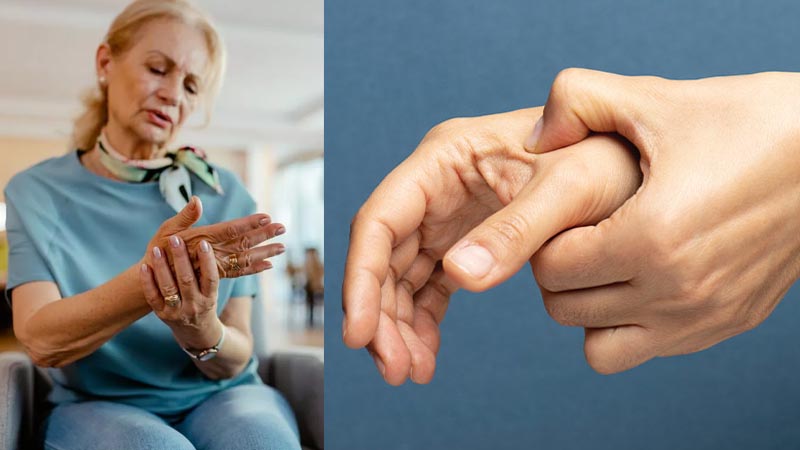Dementia experts have pointed out possible warning signs that could appear on the hands, signaling the later stages of the condition and the need for additional support. According to the Alzheimer’s Society In the UK, these symptoms may suggest advanced dementia and should not be overlooked.
Dementia affects nearly seven million people in the United States, predominantly people age 65 and older. While many people are aware of common symptoms such as memory loss, confusion, and difficulty following conversations, other less obvious signs can often be confused with normal aging.
The Alzheimer’s Society has warned that behavioral changes, including actions involving the hands, may indicate the later stages of dementia. “People in the later stages of dementia may behave out of character,” the charity explained. “These behaviors can be difficult to understand and often have different causes.”
Constantly wringing your hands, for example, can be a sign of restlessness, which is a common experience for those living with dementia. Affected people may also fidget or pull at their clothing. “Many people with dementia become restless and may fidget or pace.
They may constantly wring their hands, pull at their clothes or touch each other inappropriately in public,” the charity said. These behaviors can be triggered by pain, discomfort, the need for more physical activity, or environmental problems.
To relieve these symptoms, the The Alzheimer’s Society recommends Encourage physical activity or participating in hobbies, both new and familiar. Using a “storage box,” filled with items from the person’s past, such as photographs or mementos, can help keep hands busy and provide a sense of comfort.
Other behavioral changes that may indicate dementia include aggression, distress, hallucinations, repetition, and sundowning (increased confusion and agitation in the late afternoon and evening). The charity advises carers to understand what may be causing the behavior and check for unmet needs.
For example, making sure glasses or hearing aids are working properly, assessing the appropriateness of medications, and checking for physical discomfort can help control behavior. Additionally, it may be helpful to minimize environmental stressors, such as loud noises or disturbances, and offer engaging activities.
These include:
- Make sure glasses or hearing aids are clean and working properly. Arrange regular vision and hearing checks.
- Check if the person’s medication is appropriate or if they might be sick or in pain. A visit to the GP to rule out any physical problems is a good idea
- Check that they are not disturbed by too many people, too much activity, loud noises, sudden movements, or an uncomfortable environment (for example, one that is too hot or too bright).
- Consider whether they may be bored or need stimulation. Involve the person in meaningful activities. Gentle activities such as massaging your hands, listening to your favorite music, or stroking a soft piece of cloth can help.
- Make sure the person is comfortable; For example, that you are not cold, hungry, thirsty or needing to go to the bathroom.
Other symptoms of dementia include:
- Memory leak
- difficulty concentrating
- Having difficulty performing familiar everyday tasks, such as being confused about the correct change when shopping.
- Struggling to follow a conversation or find the right word
- Being confused about time and place.
- mood swings
If you or a loved one is experiencing symptoms of dementia, it is important to see a doctor for proper diagnosis and guidance.


